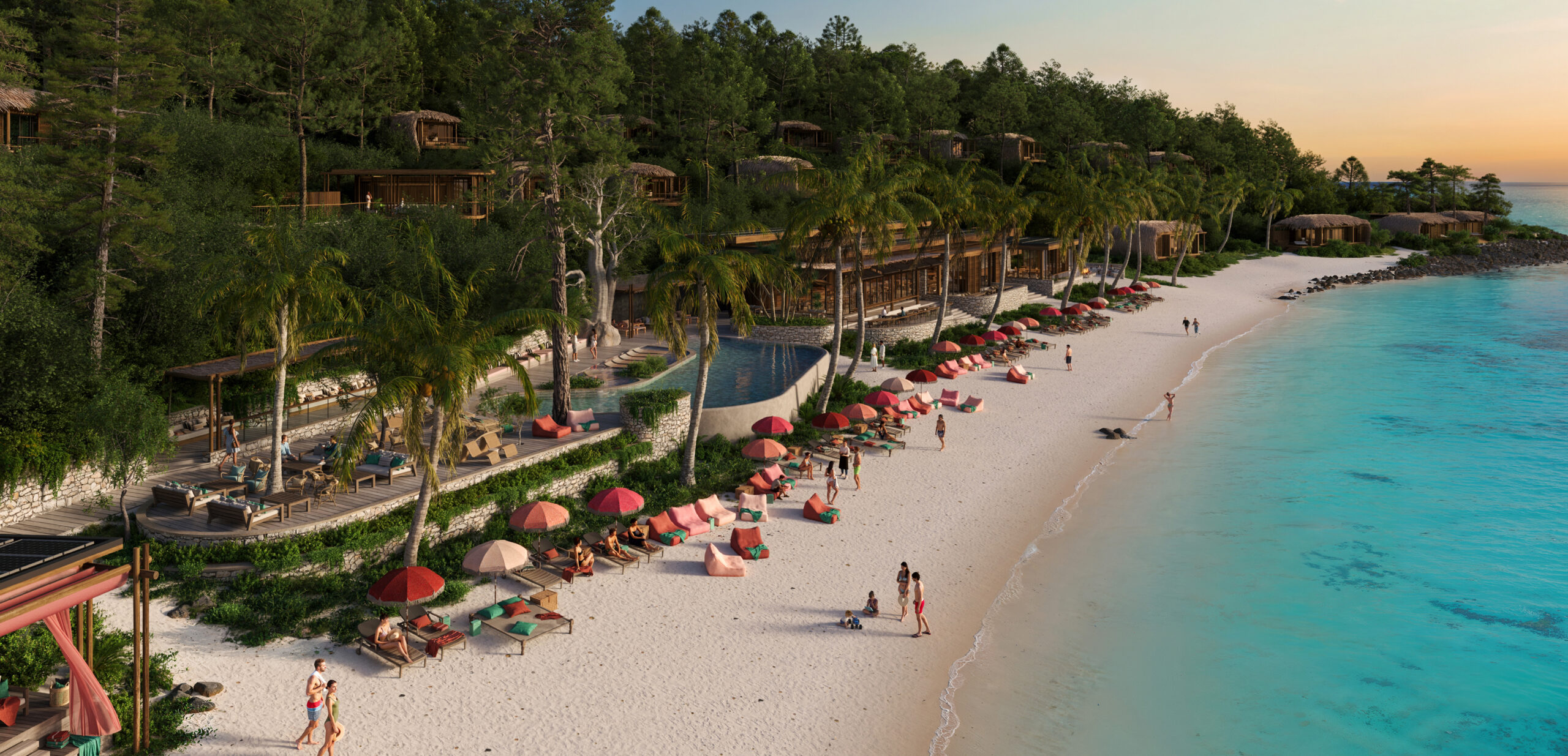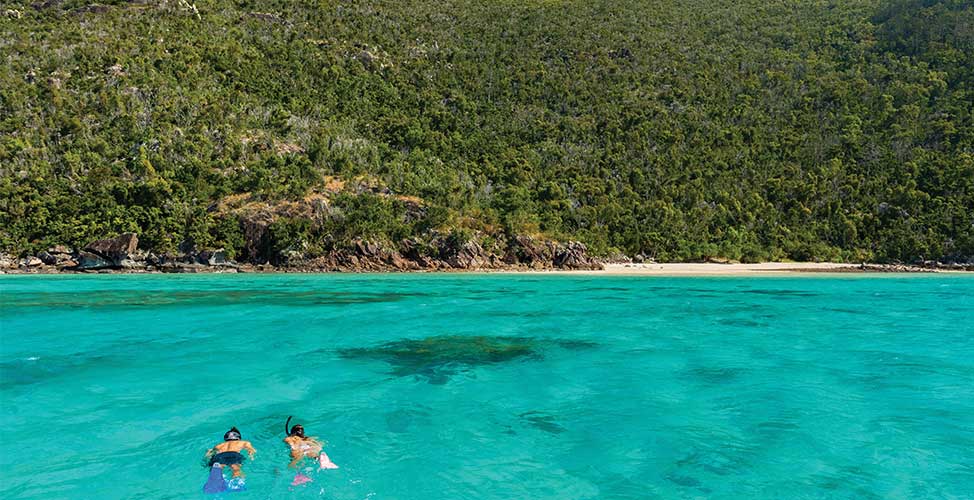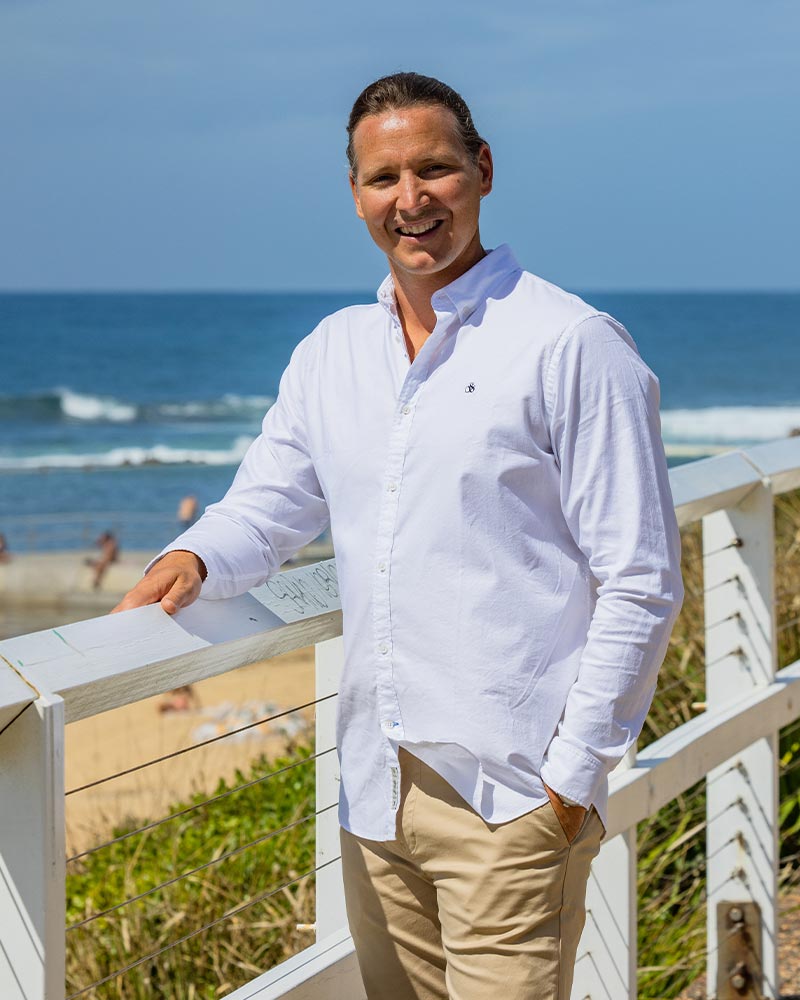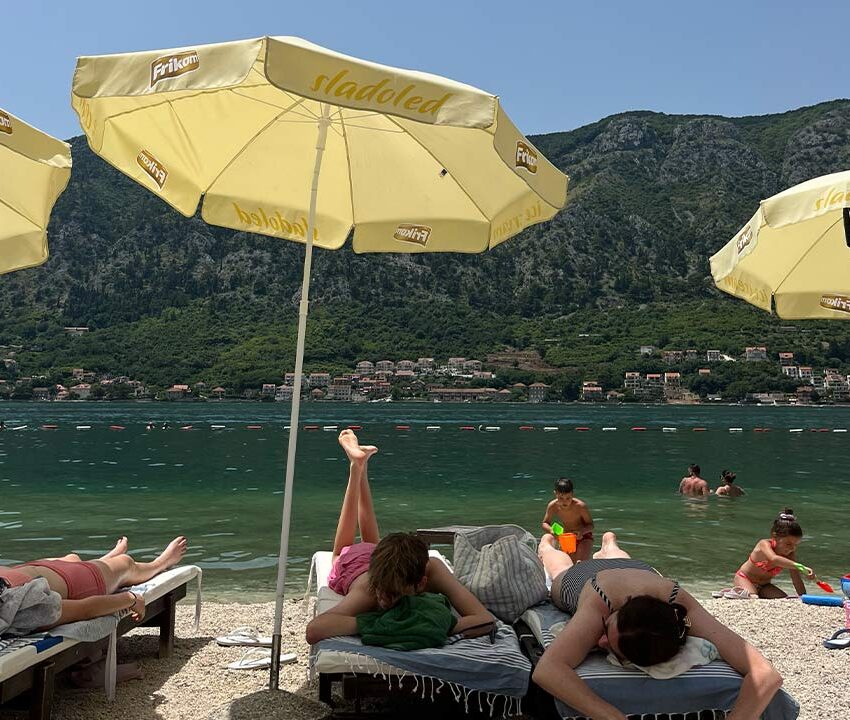
A Wild New Eco-Lodge Is Coming To Hook Island – Here’s What You Need To Know
Barefoot luxury
The Whitsundays are about to get a serious upgrade. A world-class eco-lodge is set to transform Hook Island into a luxury retreat unlike anything else in Australia, blending untamed adventure with high-end sustainability. Think clifftop dining, forest-framed eco pools, and cabins designed to immerse guests in the island’s rugged beauty. But beyond the promise of barefoot luxury, there are big questions about how this development will impact the island’s delicate ecosystem—and its deep Indigenous history.
A Return To The Wild
After sitting dormant for over a decade, Hook Island is being reimagined by Epochal Hotels, led by CEO Glenn Piper. The 9.3-hectare site, once impacted by cyclones, will soon house 39 eco-conscious cabins, two distinctive dining venues, a Nordic-style forest spa, and a Beach Club designed for social connection. More than just a resort, Piper describes it as a “place of discovery and meaningful connection,” offering everything from reef snorkelling to guided kayak tours along the ancient Ngaro Sea Trail.
Adventure, it seems, is the heartbeat of the new Hook Island. High-energy run clubs, music-fueled sunset sessions, and immersive wellness experiences will replace the usual five-star clichés. For those looking to engage with conservation efforts, hands-on reef restoration programs and coral planting initiatives will allow guests to directly contribute to preserving the island’s marine life.

Sustainable Luxury
With sustainability at the core of the development, Epochal Hotels is promising a lodge that enhances rather than harms the island. From cyclone-resistant architecture to water-efficient systems and recycled wastewater irrigation, every detail has been designed to minimise environmental impact. The lodge will limit guest numbers to just 39 cabins to maintain a sense of seclusion and ensure the natural landscape remains the star of the show.
While large-scale developments on fragile ecosystems are always a delicate balance, the team is consulting with conservation experts to ensure sustainability remains a priority beyond the build phase and into day-to-day operations.
An Indigenous Connection?
Hook Island holds deep cultural significance as home to the Ngaro people, one of Australia’s oldest living cultures. The island’s Ngaro Cultural Site features 9,000-year-old rock art—the oldest known Indigenous site on Australia’s East Coast. The lodge acknowledges this history with Epochal Hotels having expressed an intention to build a relationship with the Ngaro and Gia people. The potential for Indigenous-led guest experiences, cultural storytelling, and operational involvement is there, and when done right, can translate into genuine respect and long-term partnerships.
A New Era For The Whitsundays?
Set to open in 2027, Hook Island’s eco-lodge is shaping up to be one of Australia’s most ambitious sustainable tourism projects. A destination designed for adventure-seekers and nature lovers alike, it’s a bold vision of what luxury travel can look like in the modern age. But as with any major development in a place of such ecological and cultural significance, the true impact will only be revealed in time.
How Hook Island Compares To The Best In The World
Australia is home to some of the world’s leading eco-lodges, and Hook Island’s development raises the question: will it match up to the best? Two standout examples of sustainable luxury in Australia are Longitude 131° and Saffire Freycinet—both proving that high-end tourism can coexist with environmental and cultural responsibility.

Epochal Hotels CEO Glenn Piper
Longitude 131°: A Desert Oasis
Nestled among ancient dunes near Uluru, Longitude 131° offers guests unparalleled views of the iconic monolith. This exclusive retreat comprises sixteen tented pavilions designed to provide both luxurious comfort and a profound connection to the surrounding landscape. Each pavilion features custom furnishings and artworks by local Indigenous artists, fostering a deep appreciation for the region’s cultural heritage.
Sustainability is integral to Longitude 131°’s operations. The lodge employs eco-friendly practices, including energy-efficient systems and waste reduction initiatives, to minimize its environmental footprint in the fragile desert ecosystem. Moreover, guests can engage in guided excursions that explore the cultural and natural significance of Uluru and its environs, promoting responsible tourism and cultural awareness.
Saffire Freycinet: Coastal Elegance
Situated on Tasmania’s East Coast, adjacent to Coles Bay, Saffire Freycinet is an award-winning luxury lodge overlooking the Freycinet Peninsula and the renowned Wineglass Bay. The resort’s design harmoniously blends with its natural surroundings, offering guests an immersive experience in one of Australia’s most picturesque coastal landscapes.
Saffire Freycinet emphasizes sustainability through its architecture and operations. The lodge incorporates energy-efficient systems and sources local produce to reduce its carbon footprint. Guests can participate in unique experiences such as oyster farming and guided walks, deepening their connection to the local environment and community.
Lessons for Hook Island’s Development
The success of Longitude 131° and Saffire Freycinet underscores the importance of integrating luxury with sustainability and cultural sensitivity. As Hook Island’s eco-lodge development unfolds, prioritizing eco-friendly practices and fostering genuine partnerships with the Ngaro and Gia people will be crucial. By learning from these exemplary lodges, Hook Island has the opportunity to set a new benchmark in responsible luxury tourism within the Whitsundays.
One thing is certain—Hook Island is about to become one of the most talked-about travel destinations in the country.





